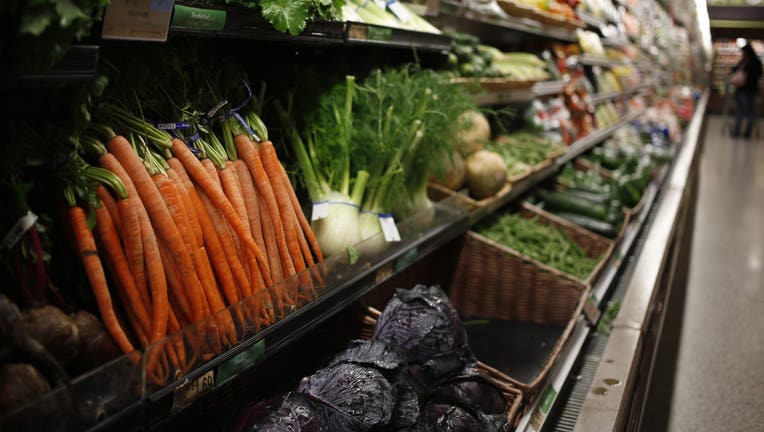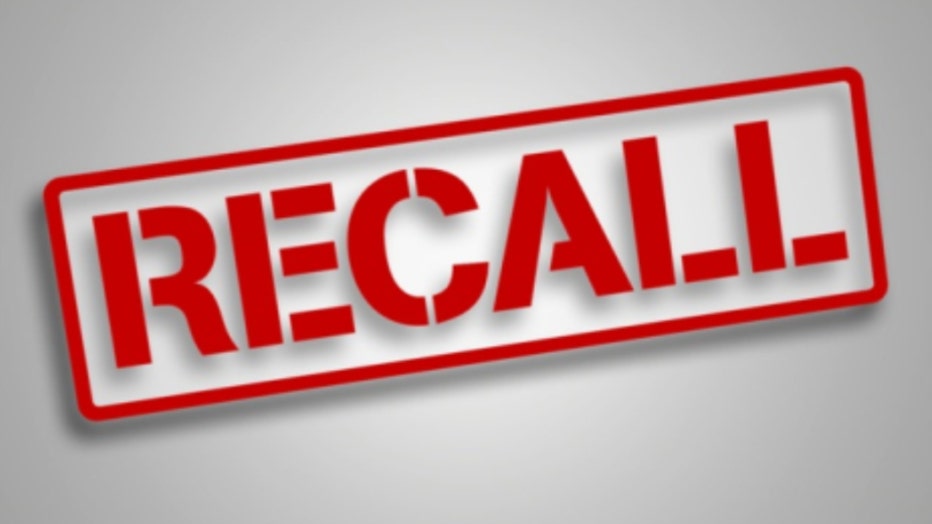Food recalls: Here's what to know about why they're issued, and what you should do

(Luke Sharrett/Bloomberg via Getty Images)
PHOENIX - The issue of food safety has been in the news lately, as a number of recalls have been issued across the country.
Here's what to know about food recalls, why they are issued, as well as what prompted such recalls.
Who regulates food in the U.S.?
Depending on the kind of food product, the answer is different.
Big picture view:
According to the website for the National Agricultural Law Center, there are two agencies that regulate food safety in the United States: The Food Safety and Inspection Service (FSIS), which is part of the U.S. Department of Agriculture, regulates meat, poultry, and egg products, and the Food and Drug Administration (FDA), which regulates all other food products.
"This split in federal food safety jurisdiction stems from the legislation that grants these agencies their food safety authority," read a portion of NALC's website.
It is worth noting that per a document issued by the FDA, the agency has no mandatory recall authority over infant formula due to existing laws.
Who issues food recalls?
Per the NALC's website, the FSIS does not have the authority to conduct mandatory recalls, but companies can voluntarily recall FSIS-regulated food.
Some recent examples of voluntary recalls include a recall of canned tuna products sold at Costco, Trader Joe's and other grocery stores across the country, and a recall of dark chocolate covered pretzel that was announced on Jan. 30.
Meanwhile, NALC's website states that the FDA has the power to issue mandatory food recalls. They say operational differences between the FSIS and the FDA are responsible for the difference in how food items are recalled.
What They Said:
"Because FSIS inspects both food products and product labels before they are marketed, problematic foods are usually caught early on. This means that for FSIS regulated food, the voluntary recall process serves as a backup for the food safety hazards that fall through the cracks," read a portion of NALC's website. "However, because FDA does not conduct pre-market food or label inspections of every product, the voluntary recall process serves as a primary line of defense against food safety hazards for FDA regulated food."
Why are food recalls issued?

Dig deeper:
Per the FDA's website, food may be recalled for a number of reasons, including:
- Contamination with disease-causing microorganisms like bacteria, viruses or parasites
- Presence of foreign objects like broken glass, or fragments of metal or plastic
- Failure to list a major food allergen, like peanuts or shellfish, on the product label
Officials with FSIS, meanwhile, list the following as reasons for asking firms to recall certain products:
- Illness outbreaks
- Undeclared allergens
- Products produced without inspection
- Products imported without inspection
- Drug residues
- STECs, which is an acronym for "Shiga Toxin-Producing Escherichia coli," a type of E. coli that can lead to a severe E. coli infection in humans.
- Listeria monocytogenes or Salmonelle in ready-to-eat food items
- Foreign matter
- Other reasons not otherwise specified
Both the FDA and the FSIS have the same three-class classification system for product recalls:
- Class I: defined as a recall involving products with a "reasonable probability of serious, adverse health consequences or death."
- Class II: defined as a recall involving products with a "remote probability of adverse health consequences."
- Class III: defined as a recall involving products that "will not cause adverse health consequences" (FSIS) or "not likely to cause adverse health consequences." (FDA)
How many food recalls were issued in 2024?
Per an article published by Food Safety Magazine on Feb. 11, there were 491 published recalls in 2024, which is lower than numbers from 2021, 2022, and 2023, when there were 532, 504, and 506 recalls, respectively.
By the numbers:
The same article states that the leading driver of recalls in 2024 was undeclared allergens, which caused about 180 recalls. The second-largest driver of food recalls is listeria (79), followed by salmonella (54) and all varieties of E. coli (14).
The figures show that foreign material, regardless of the kind of material, was the reason for 50 recalls.
What should I do if a grocery item I bought is being recalled?
Federal government website FoodSafety.gov has some advice for people who find recalled food in their home:
What you can do:
Per the website, people should not panic when they find recalled food in their home, because many food recalls are issued due to a potential for the product to be contamination, and food manufacturers often issue a recall as a precautionary measure.
The same website also states that people should not open or eat the food, or feed the food to their pets. Instead, they should check the recall notice to find out what to do with the food. Officials say typically, the instructions will tell people to either return the product to the store where they bought it for a refund, or to properly dispose of the product so that other people or animals cannot eat it.

